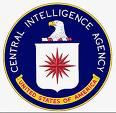CIA Finally Admits It Masterminded Iran’s 1953 Coup

On the 60th anniversary of the 1953 military coup in Iran that overthrew the government of radical nationalist Mohammad Mossadegh, the US has declassified documents detailing how the CIA’s secret operation brought the country’s Shah back to power.
“American and British involvement in Mossadegh’s ouster has long been public knowledge [In 1979 CIA officer Kermit Roosevelt published a proud account of the coup he led on President Eisenhower’s order], but today’s posting includes what is believed to be the CIA’s first formal acknowledgement. that the agency helped to plan and execute the coup,” the US National Security Archive said.
Iran became independent from Britain after WWII and in April 1951 Iranians democratically elected the head of the National Front party, Dr. Mohammad Mossadegh, as prime minister. Mossadegh moved quickly to nationalize the assets in Iran of the Anglo-Iranian Oil Company (the forerunner of today’s BP) a step that brought his government into confrontation with Britain and the US.
Britain’s MI6 military intelligence then teamed up with the CIA and planned, elaborated and carried out a coup that ousted Mossadegh in August 1953 and returned Shah Mohammad Reza Pahlavi to power.
The first attempted coup failed after Mossadegh got wind of the conspiracy, but American and British intelligence services in Iran then improvized a second stage of the coup, pulling pro-Shah forces together and organizing mass protests on August 19, 1953. These protests were immediately supported by army and police. Mossadegh’s house was destroyed after a prolonged assault by pro-coup forces, including several tanks.
Mossadegh was replaced with Iranian general Fazlollah Zahedi, who was handpicked by MI6 and the CIA. Mossaddegh was later sentenced to death, but the Shah never dared to carry out the sentence. Mossadegh died in his residence near Tehran in 1967.
The Shah’s pro-Western dictatorship continued for 27 years and ended with the Islamic Revolution of 1979, which paved the way for today’s Iran, where anti-American sentiments remain strong.

